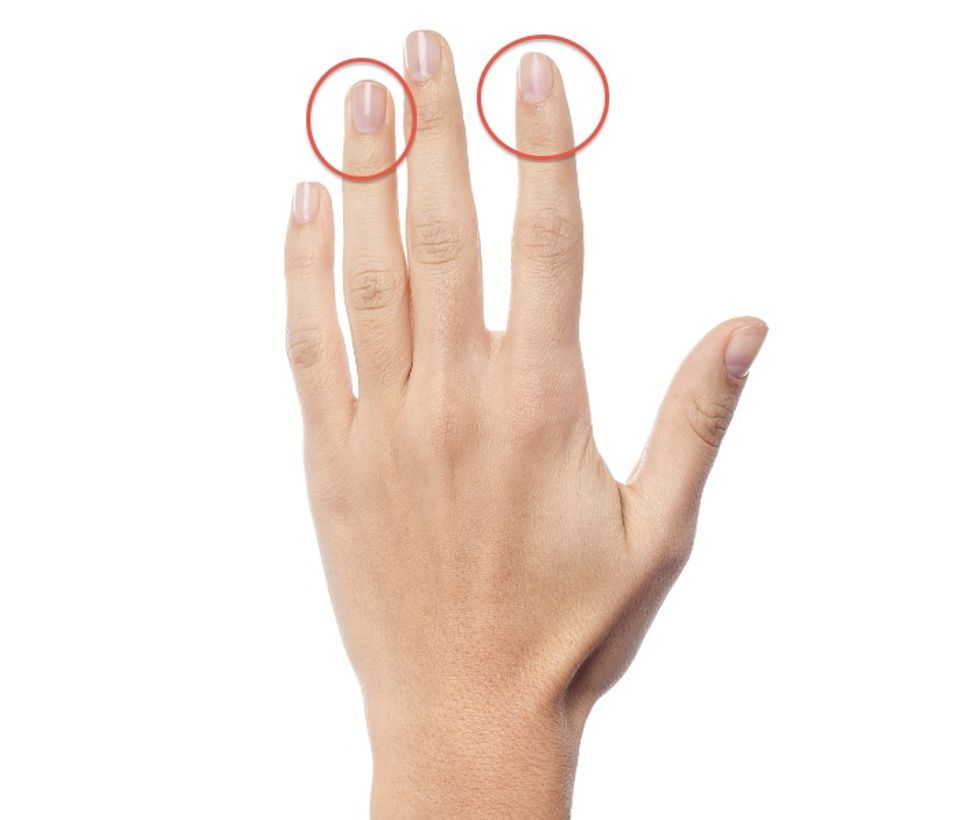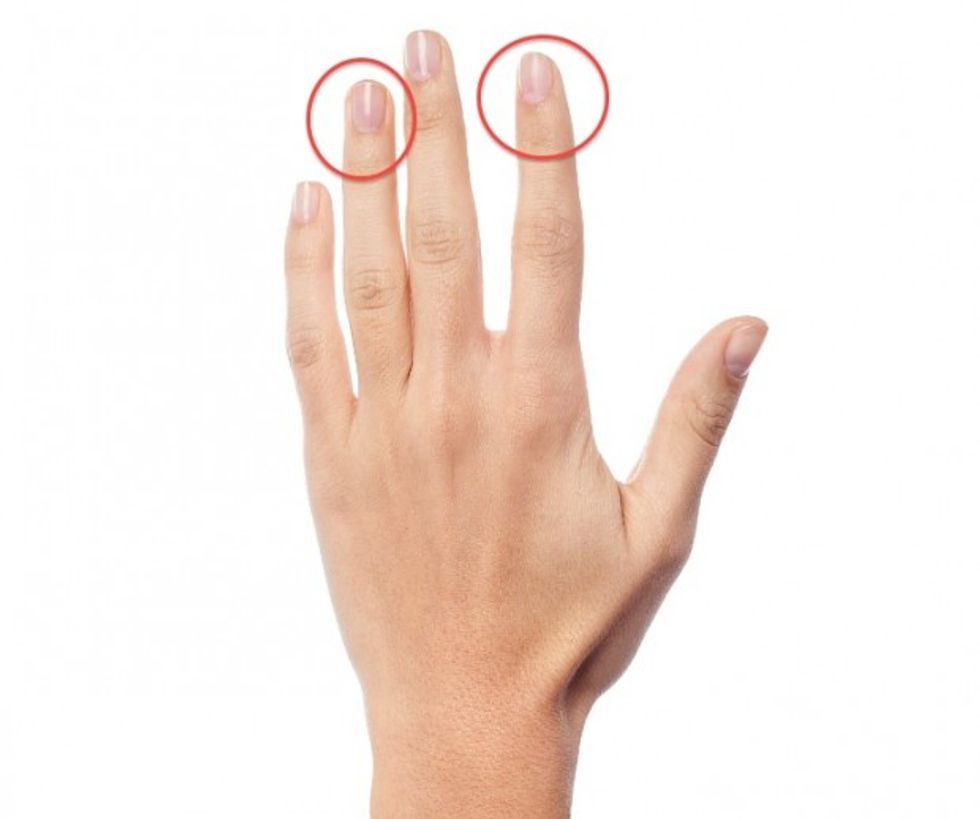
Photo credit: Shutterstock

New research out of the U.K. claims that both men and women tend to fall into two categories: those with a propensity toward promiscuity or those who favor faithfulness.
Psychologists at Northumbria University and Oxford University examined an online questionnaire analyzing sexual habits of U.S. and U.K. individuals between the ages of 18 and 63, while also exploring photos of the right hands of 1,314 British individuals to explore the 2D:4D ratio — the notion that the ring finger's length is tied to testosterone levels in the womb, according to AFP.
A longer ring finger means more prenatal exposure to testosterone, with researchers claiming that past analysis has shown that people with index and ring fingers that are the same length are more likely to be faithful — and those with a longer ring finger could be more likely to cheat.
In this particular study, the questionnaire provided information about the attitudes of individuals when it comes to "noncommittal" sex, while the 2D:4D information allowed researchers to explore past claims about how the length of the ring finger could be tied to monogamy.

"From previous work, the researchers already knew that the higher levels of [fetal] testosterone can go together with greater sexual promiscuity as an adult," Oxford University reported. "While not predictive of individual behaviour, the length of the ring finger versus the index finger can help identify the group of people who are more likely to be promiscuous."
Exploring the answers on sexual attitudes, researchers found that people fall into one of two groups: one that showed a higher value for monogamy and fidelity and another that was comprised of people "more likely to be promiscuous," which was true for both men and women.
"This research suggests that there may be two distinct types of individuals within each sex, pursuing different mating strategies," Dr Rafael Wlodarski, a postdoctorate researcher at Oxford University, told the Daily Mail. "We observed what appears to be a cluster of males and a cluster of females who are more inclined to 'stay,' with a separate cluster of males and females being more inclined to 'stray' when it comes to sexual relationships."
Researchers were careful to note, though, that they cannot predict individual behavior and that decision-making when it comes to romance is predicated upon a variety of factors.
"It is important to note that these differences are very subtle, and are only visible when we look at large groups of people," Wlodarski said. "We cannot really predict who is going to be more or less faithful."
Males, overall, were found to be more promiscuous and to display more testosterone exposure in the womb than females; monogamy was slightly favored among females, according to the study's abstract.
"While males are more promiscuous and display higher prenatal testosterone exposure than females overall, our analyses also suggest that the within-sex variation of these variables is best described by two underlying mixture models, suggesting the presence of two phenotypes with a monogamous/promiscuous ratio that slightly favours monogamy in females and promiscuity in males," the abstract reads.
(H/T: Daily Mail)
Billy Hallowell